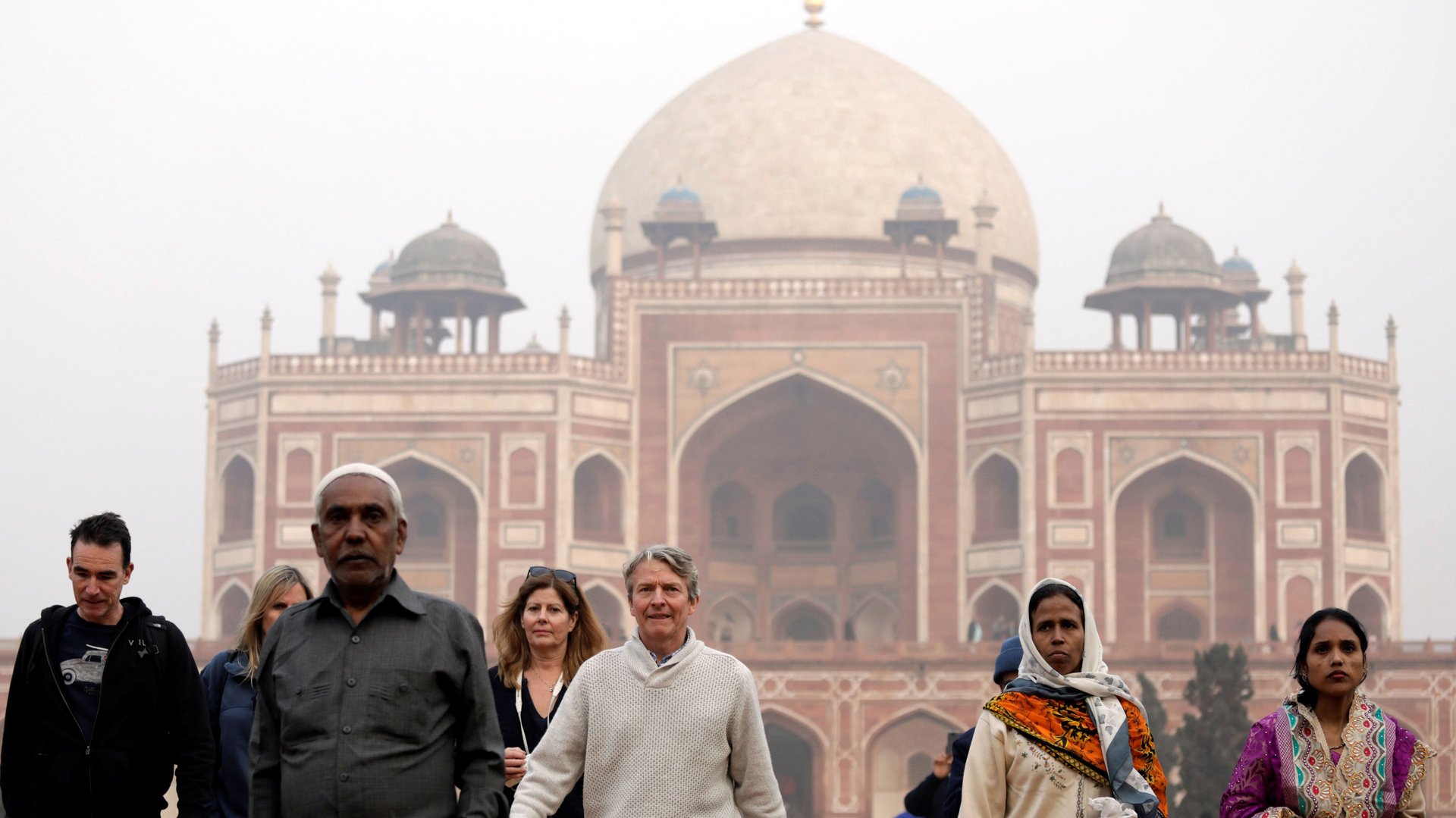From butt hoses to Burger King: Tourists recount their first experiences of India
This question originally appeared on Quora: What are some unexpected things first-time visitors to India notice? Answers have been mildly edited for style and grammar.


This question originally appeared on Quora: What are some unexpected things first-time visitors to India notice? Answers have been mildly edited for style and grammar.
Samantha Ryan from the US, who has visited India 6 times:
Several people on a single bike
Bank guards and airport guards with giant guns
Over-the-top security in malls, hotels, and cinemas
Everyone having a maid (yet calling foreigners lazy, lol)
Beggars
The amount of English thrown in the middle of sentences. It helped me get a small idea of what people around me were saying
Outlets having switches
Having to turn on the heater for taking a shower
Using a butt hose for the first time in a Chili’s
…I experienced a bucket shower and honestly loved it
How many American chains there are—KFC, McDonalds, Burger King, Starbucks, Chili’s, California Pizza Kitchen, Dunkin’ Donuts, Pizza Hut, Dominos, etc
How much more Indian food there is than what restaurants serve (…when you take into account all of the different state cuisines available)
Movies playing the national anthem before starting
People standing outside actors’s houses
School uniforms
Gas cylinders in kitchens
Hanging clothes to dry instead of using a dryer
My friend’s house costing Rs1 crore despite being just a 3 BHK apartment
Everyone in advertisements being more white than me, but the people being tan
Muhammed Borhanuddin, a resident of Jakarta, who recounted his one-day-one-night trip to Kolkata from Bangladesh back in 1992:
From the first to last moments during our trip, we saw that the only one model of car that was mostly plying in the streets of West Bengal was Ambassador—be it privately owned or taxis, be it new or rusty. Wherever we went, always we saw this one car the most. I asked many people, “How is it possible that almost all of you people seem to use this one car?” They proudly answered, “Yes we don’t want imported cars.” I kept on asking many more people of different walks of life to verify the answer. The answer never changed, even a little. Even they did not blame the government for it, rather backed the government stance, “We have to wait until we can make other cars.” What nationalism, we never even thought of, we had rather used to know that car means always a Japanese thing that we had to import only, as it was the case back at our home country! Making our own car, even hoping for making a better one than this Ambassador, was just something beyond our imagination!
[…]
Today, decades later, we see the stars of India lightening the global sky while our dark-faced workers construct other people’s facilities around the world. The descendants of Ambassador, modern India today is one of the major car manufacturers of the world, while Bangladesh has become a major importer of them instead of making their own; the IT youngsters of India are dominating a vast portion of the world IT sector, while labourers of Bangladesh are cleaning streets of the world. Today we see Sundar Pichai sitting in America leading Google—the no. 1 search engine of the globe and making billions, while our “great sons” like Sajib Joy and Tarek Rahman are stealing billions of people’s money and laundering to Europe and America! Bangladeshis and their leaders still lack much of such holistic nationalistic motivation as of the Indians, ambition among people to attain self-dependency and self-empowerment.
Liz Deacle, a Britisher who migrated to Australia in 2009, went backpacking in India with her 13-year-old daughter:
Whether they mean to be or not, Indian people are nosy. Almost everyone you meet—if they can speak English then you’d better be ready to answer some personal questions. On average, we were asked about twenty-seven times a day:
Where do you live?
How much is your mortgage?
What job do you have?
Why are you wearing those hideous white boots and…
Does your son want to marry my daughter?
Ok. I made that last bit up, but seriously, I have never been faced with such upfront questioning in all of my life.
It was wonderful. Like going on holiday with Jimmy Fallon.
You can follow Quora—the place to gain and share knowledge, empowering people to learn from others and better understand the world—on Twitter, Facebook, and Google+.
We welcome your comments at [email protected].